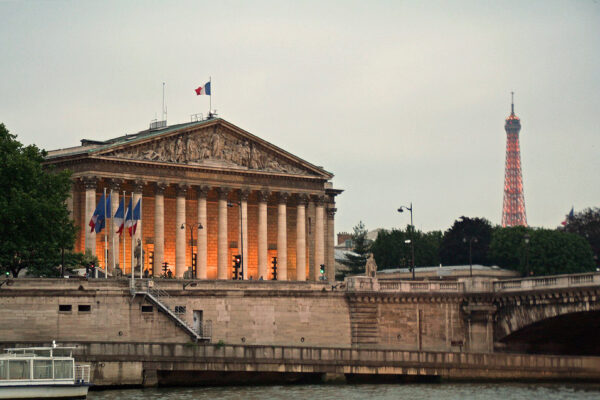
The outcome of the first voting round of the legislative elections in France confirms the three-way split I wrote about in April. President Emmanuel Macron’s liberal centrists and the left-wing New Ecologic and Social People’s Union (NUPES, it sounds better in French) took 26 percent support each. The combined far right won 23 percent.
The once-dominant Republicans, who were last in power under Nicolas Sarkozy, divided up the rest with also-rans and regional parties.
The electoral map reveals a geographical divide. Macron’s candidates placed first in the biggest cities and the prosperous western half of the country. The left have their stronghold in the interior of the south. That was once the heartland of the French Communist Party. They also took the low-income suburbs of Paris. The far right got its best results in the deindustrialized north and on the Mediterranean coast, where nationalists have roots going back decades, to when white Algerians settled there after independence.
Macron has been weakened
Macron can still defend his majority in the National Assembly, but, unlike in 2017, he will need his allies to pull it off: the centrist Democratic Movement and former prime minister Édouard Philippe’s liberal Horizons.
Pascale Combelles Siegel, a managing director of the Ankura Consulting Group, points out that Macron’s coalition, renamed Together, lost ground:
419 of its candidates are qualified for the second round, 100 fewer than in 2017. Of those, only 201 lead ahead of the second round. They were 449 in 2017.
289 seats are needed for a majority.
Philippe, who was more popular as prime minister than Macron, is expected to run for president in 2027.
Mélenchon keeps the left together
The combined left-wing vote in the presidential election would have been enough to challenge Macron. But because four left-wing candidates split 30 percent of the votes, the far-right Marine Le Pen placed second with 23 percent. She got 41 percent support in the second voting round against Macron.
Arthur Goldhammer, an American expert on French politics, credits Jean-Luc Mélenchon — who placed third in the presidential election with 22 percent — for bringing the left together. But that is also the extent of his achievement:
The total NUPES vote was roughly the same as the total vote for the left parties in the first round of the presidential [election].
Mélenchon, a Hugo Chávez admirer who left the mainstream Socialist Party in 2008, has consolidated the left, but he hasn’t expanded it.
And it may yet suffer in the runoffs.
The left-wing vote is concentrated in urban constituencies. Given the choice between a Macronist and a left-wing candidate beholden to Mélenchon, right-wing voters in the cities will almost certainly opt for the former.
In rural constituencies where Macron’s candidates face challengers from the center- or far right, left-wing voters ought to prefer the centrists.
(Ir)relevance of the far right
On the one hand, Marine Le Pen’s National Rally has clearly supplanted the Republicans as the major party of the right and is now the third force in French politics.
On the other, she is unlikely to win more than a few dozen seats, up from eight — and even less likely to win power. Not only does the National Rally suffer from the logic of the two-round voting system; it is weakened by competition from Éric Zemmour’s Reconquest.
Although that competition is much smaller than reactionary well-wishers were predicting a few months ago. Zemmour made international headlines when he announced his presidential candidacy in December. His party won 4 percent of the votes. Zemmour himself didn’t even make the runoff for a parliamentary seat in the south of France.
Cohabitation after all?
Presidential and legislative elections are held in close succession to prevent divided government. The last time a president did not have a majority in the National Assembly was from 1997 to 2002, when the center-right Jacques Chirac had to tolerate the left-wing Lionel Jospin as prime minister. The French call this cohabitation. I explained in May how it works.
Mélenchon is trying to convince voters they can elect him prime minister, but I agree with Siegel that Macron is more likely to seek a coalition with the center-right than cohabitation with the left if he falls short of a majority.
Macron’s first two prime ministers were (former) Republicans. The liberals and conservatives agree on taxes and pension reform. They are not that far apart on immigration.
Macron’s proposal to invest €50 billion in green energy may be a bridge too far for the Republicans. But even there, there is room for compromise now that Macron has U-turned in favor of nuclear power. Mélenchon wants only solar and wind.
